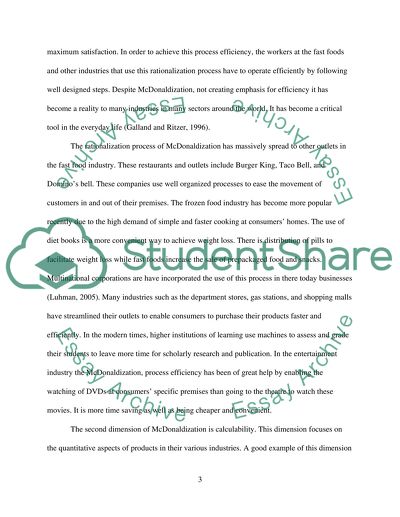Cite this document
(McDonaldization Process in the Fast Food Industry Case Study, n.d.)
McDonaldization Process in the Fast Food Industry Case Study. Retrieved from https://studentshare.org/macro-microeconomics/1687140-mcdonaldisation
McDonaldization Process in the Fast Food Industry Case Study. Retrieved from https://studentshare.org/macro-microeconomics/1687140-mcdonaldisation
(McDonaldization Process in the Fast Food Industry Case Study)
McDonaldization Process in the Fast Food Industry Case Study. https://studentshare.org/macro-microeconomics/1687140-mcdonaldisation.
McDonaldization Process in the Fast Food Industry Case Study. https://studentshare.org/macro-microeconomics/1687140-mcdonaldisation.
“McDonaldization Process in the Fast Food Industry Case Study”, n.d. https://studentshare.org/macro-microeconomics/1687140-mcdonaldisation.


